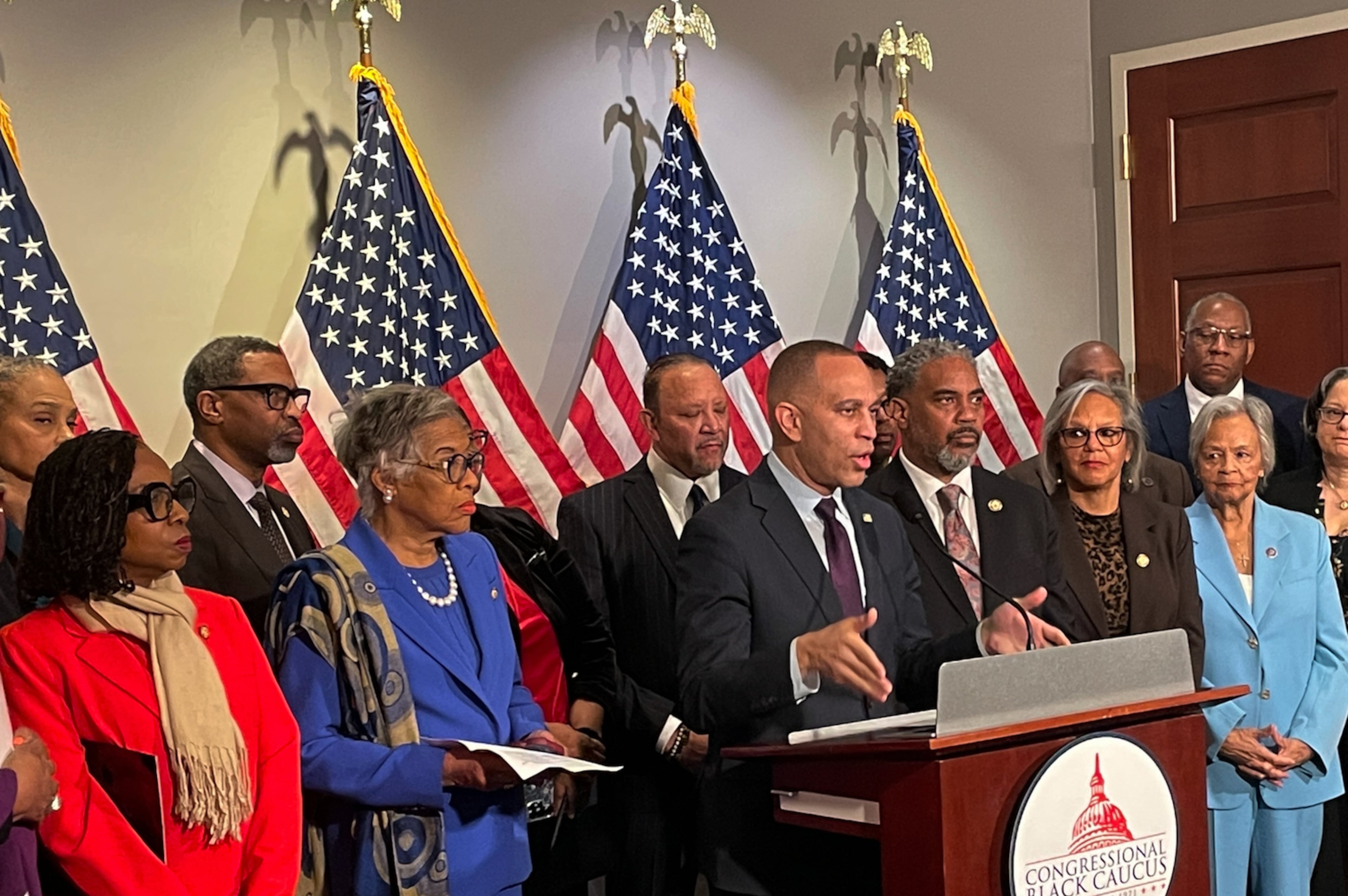‘DEI hire’ is an attack on Black identity and achievement

As an African American, I am deeply troubled by the rhetoric directed at Vice President Kamala Harris by former President Donald Trump and his loyalists. Trump’s baseless claims that she isn’t a Black woman and dismissing her as merely a “diversity hire” are not only factually incorrect but also dangerously divisive. These statements perpetuate harmful stereotypes and undermine the significant progress we have made toward achieving racial equality and representation in American politics.
Trump’s rhetoric is not just an attack on Harris; it’s an attack on the very notion of Black identity and achievement. Harris is a proud Black woman of Jamaican and Indian descent, embodying the rich diversity that is the essence of the United States. Questioning her Blackness denies the complex and multifaceted nature of African American identity and disrespects her significant accomplishments.

The danger of Trump’s rhetoric lies in its potential to divide and destabilize. By questioning Harris’ racial identity and qualifications, Trump isn’t just attacking one individual; he’s reinforcing a narrative that Black success must always be scrutinized and invalidated. This type of rhetoric is deeply harmful because it sows seeds of doubt and division within our society, pitting communities against each other and eroding the very fabric of our democracy.
Historically, Trump has a troubling record of racist behavior and policies. From his derogatory comments about African nations as “s---hole countries” to his failure to promptly denounce white supremacists after the Charlottesville rally, Trump’s actions have consistently revealed a pattern of racial bias. As president, he further inflamed racial tensions with policies and rhetoric that marginalized communities of color.
Trump’s presidency did little to advance issues of importance to African American communities. His administration’s policies often seemed more focused on dismantling the progress made under previous administrations. For instance, Trump’s efforts to repeal the Affordable Care Act threatened the health care coverage of millions of African Americans. His criminal justice policies, including the revival of federal executions and his opposition to comprehensive police reform, disproportionately affected Black communities. Additionally, his tax policies primarily benefited the wealthy, exacerbating economic disparities.
In contrast, Harris’ track record demonstrates a genuine commitment to addressing the issues that matter most to African Americans. As California’s attorney general, she implemented initiatives aimed at reducing recidivism and addressing systemic inequalities in the criminal justice system. As a senator, she was a vocal advocate for health care reform, economic equity and civil rights protections. Her work on addressing the root causes of migration from Central America as vice president underscores her comprehensive approach to tackling complex socio-economic issues.
Racism, especially when amplified by influential figures like Trump, poses a direct threat to America’s civil society. It undermines trust in institutions, fosters division and perpetuates inequality. Trump’s rhetoric not only emboldens racists but also legitimizes discriminatory attitudes and behaviors, making it harder for marginalized communities to achieve equity and justice. This toxic environment can lead to increased incidents of hate crimes, social unrest and a general weakening of the social bonds that hold our diverse nation together.
Moreover, Trump’s behavior should alarm all Americans, regardless of political identity. When a leader uses race as a tool for division, it sets a precedent that any group could be targeted next. This erosion of civil discourse and democratic norms threatens the very foundation of our republic. It is not merely a Black issue; it is an American issue. Racism and divisiveness weaken our national unity, impair our ability to address common challenges and degrade the moral standing of the United States on the world stage.
The upcoming election is crucial for determining the direction of our country. It’s a choice between continuing down a path of division and regressive policies or moving forward with leaders who embody the principles of equity, justice and inclusivity. Harris, with her lived experience as a Black and South Asian woman and her proven track record of advocacy and action, represents the better choice for all Americans. She brings not only a deep understanding of the issues facing our communities, but also the resilience and determination needed to address them.
Harris’ presence on the ticket is not merely symbolic; it is a testament to the strides we have made toward a more inclusive and representative democracy. Her leadership is vital in ensuring the government reflects the diversity of its people and is committed to policies that promote the well-being of all citizens, particularly those who have been historically marginalized.
Everyone everywhere must reject Trump’s racist rhetoric and baseless attacks on Kamala Harris. This election is about more than just political preference; it is about affirming our commitment to equality, justice and the integrity of our democratic institutions. We must decide if we want a future where all Americans, regardless of race, can thrive and contribute to a society that values diversity and upholds the principles of fairness and equity.
Raymond D. Kemp served 33 years in the U.S. Navy, retiring as Fleet Master Chief. He now runs a leadership consulting firm.


